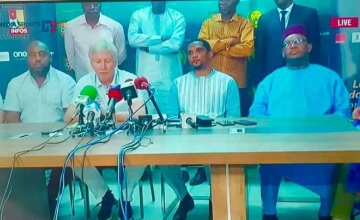
KAMPALA, Uganda (AA) - Additional African countries are set to approve a new vaccine for malaria with 20 million doses available to purchase in 2023, according to an official with the World Health Organization (WHO).
The UN health agency said in a high-level meeting earlier this week that regulatory authorities from at least 10 African countries are currently examining trial data to evaluate the vaccine.
Additional countries are expected to approve the vaccine in the coming weeks.
"We expect many more countries to come through," WHO's malaria vaccine implementation head, Mary Hamel, said at the meeting.
Ghana became the first country on April 13 to approve public usage of a new experimental malaria vaccine, followed by Nigeria, making them the first nations globally to use the new R21/Matrix-M vaccine.
The vaccine was developed by Oxford University scientists and manufactured by the Serum Institute of India.
WHO Director-General Tedros Adhanom Ghebreyesus said the vaccine would increase equity in access to malaria prevention.
Nearly every minute, a child under 5 dies of malaria, according to the WHO, that said many deaths are preventable and treatable.
The vaccine has undergone clinical trials in the UK, Thailand and several African countries.
There is an ongoing phase III trial in Burkina Faso, Kenya, Mali and Tanzania that has enrolled 4,800 children.
Results are expected to be reported later this year.
Adrian Hill, chief investigator of the R21/Matrix-M program and head of the Jenner Institute at Oxford at the Nuffield Department of Medicine, said: “This marks a culmination of 30 years of malaria vaccine research at Oxford with the design and provision of a high efficacy vaccine that can be supplied at adequate scale to the countries who need it most.”
The R21/Matrix-M is a low-dose vaccine that can be manufactured at a mass scale and modest cost, enabling hundreds of millions of doses to be supplied to African countries which are suffering a significant malaria burden.
Hamza Kyeyune/AA














